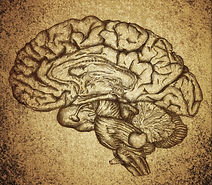Alexander Technique for Stroke Recovery
With David Moore, Caroline Blackshaw and teachers and graduates of the school
Thursday February 20 - 2.30 - 4.00pm
Free workshop
The Alexander Technique, with its emphasis on repatterning movement, is a promising approach for stroke rehabilitation. We know that Alexander himself had a stroke when he was 78 years (in 1947) which partially paralysed his left side, and he was reported to have used the Technique to recover fully.
There has been no research done on the Alexander technique in relation to stroke rehabilitation but there are a few anecdotal accounts of the efficacy of the work for some survivors in regaining significant or even full function.
Here is a link to the account of a stroke survivor who has been told that she would have to "adapt to her disability' but instead regained full functioning by dint of strong determination and greatly helped by the Alexander Technique.
The workshop is free and provides a chance to experience the technique and to assess whether is could be a useful approach for rehabilitation and recovery. Participants, can bring a friend, spouse or helper with them to the workshop.
What can the Alexander Technique contribute to stroke recovery?
The Alexander Technique brings a special perspective to recovering function. Narrowly focused attention to recovering specific movements can leave out a wider focus on overall coordination, bringing in unnecessary extra tightening, thereby limiting the possibility for a larger and more holistic improvement. This wider focus on the overall coordination in the hallmark of Alexander technique practice.
